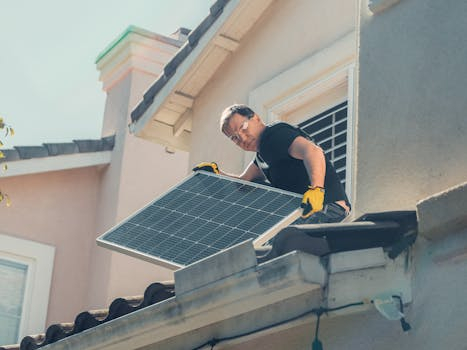Sustainable Approaches to Advanced Home Maintenance
In today’s world, sustainability is more than just a buzzword – it is a concept that has become crucial for every aspect of our lives. From our food choices to our transportation methods, people are increasingly looking for ways to live a more sustainable lifestyle. And one area where sustainability is gaining traction is in home maintenance. As we strive to minimize our impact on the environment, we are also learning that sustainable approaches to home maintenance not only benefit the planet but also lead to cost savings and a healthier living environment. In this article, we will explore the different sustainable approaches to advanced home maintenance that you can adopt to make your house not just a place to live but a sustainable sanctuary for you and your family.
Sustainable Approaches for Energy-efficient Homes
Insulation and Sealing
Insulating and sealing your home is one of the most effective ways to reduce energy consumption and improve sustainability. By making sure your home is well-insulated, you can lower your heating and cooling costs and decrease your home’s carbon footprint. A properly insulated home also ensures a more comfortable living space by maintaining a consistent temperature throughout the year.
Solar Panels
Solar panels are a renewable energy source that has gained popularity in recent years. By harnessing the sun’s energy, solar panels can generate electricity for homes, reducing the dependence on fossil fuels and cutting down on electricity bills. Furthermore, many governments offer incentives and tax credits for installing solar panels, making it a cost-effective option in the long run.
Sustainable Approaches for Water-efficient Homes
Low-flow Fixtures
Installing low-flow fixtures such as faucets, showerheads, and toilets can significantly reduce your home’s water usage. These fixtures use less water without compromising on performance, resulting in lower water bills and reduced strain on the municipal water supply. With the rising concerns of water scarcity, this simple switch can make a big impact on the environment.
Greywater Systems
Greywater systems are becoming increasingly popular in sustainable homes. These systems collect water from sinks, showers, and washing machines and recycle it for use in irrigation or toilet flushing. By reusing water, greywater systems can dramatically reduce a home’s water usage, making it a sustainable alternative to traditional plumbing systems.
Sustainable Approaches for Waste Management
Composting
Composting is another sustainable approach to home maintenance. Instead of throwing away food scraps and yard waste, you can turn them into nutrient-rich compost that can be used to enrich soil in your garden. Composting reduces the amount of waste that ends up in landfills and also helps naturally fertilize your plants, eliminating the need for chemical fertilizers.
Recycling
Recycling is a simple yet effective way to reduce waste and contribute to a more sustainable environment. By recycling materials such as paper, plastic, and glass, we can conserve natural resources and reduce the amount of waste that ends up in landfills. Make sure to always check for recycling symbols on products and dispose of them accordingly.
Sustainable Approaches for Indoor Air Quality
Natural Cleaning Products
Using harsh chemical cleaners not only pollutes the environment but also affects the air quality inside our homes. Switching to natural and environmentally-friendly cleaning products can improve indoor air quality, making the air safer for you and your family to breathe. Alternatively, you can make your own cleaning products using simple and natural ingredients like vinegar, baking soda, and essential oils.
Indoor Plants
Indoor plants do more than just add a touch of green to your home décor. They also have numerous health benefits, including purifying the air and reducing toxins. Adding indoor plants to your home can improve indoor air quality and make your living space more sustainable.
In conclusion, as we become more conscious of our impact on the environment, it is essential to adopt sustainable approaches to advanced home maintenance. By making simple changes to our homes, we can reduce energy and water consumption, improve waste management, and create a healthier living environment. It’s time to make your home a sustainable sanctuary – for you and the planet.











